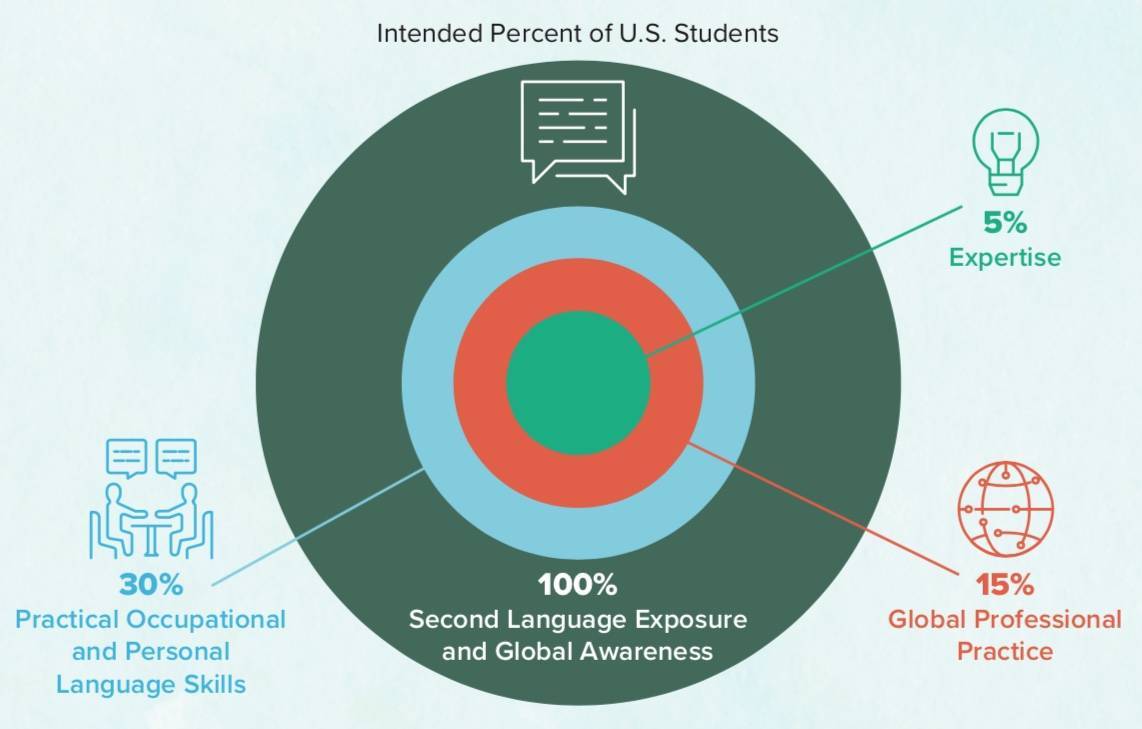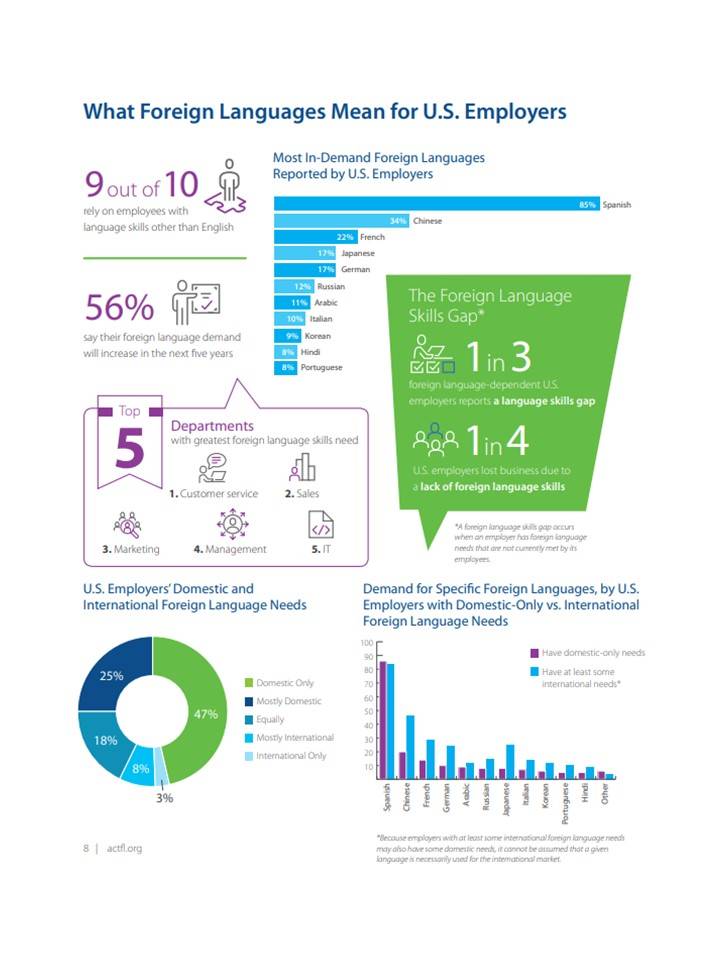Why Language
Attainment goals for the nation’s future language learners

Infograph source: America's Languages: Investing in Language Education for the 21st Century (Cambridge, MA: American Academy of Arts & Sciences,
2017), accessible at https://www.amacad.org/multimedia/pdfs/publications/researchpapersmonographs/language/Commission-on-Language-Learning_Americas-Languages.pdf.
Language is considered a critical part of a liberal arts education. Part of Grand Valley State University's vision and strategic priorities are to "inspire and equip students to be active life-long learners and global citizens" and to require global learning of all undergraduate majors. This does not mean that we expect all students to become fluent, but instead to have exposure to a second language and culture, which in turn leads to practical language skills. The Modern Languages and Literatures Department's language courses offer not just the chance to study a language, but to actively engage with another culture on its own terms.
Multiple studies link the benefits of language learning to:
- enhanced cognitive ability and flexibility
- delaying mental effects of aging
- empathy and effective interpersonal skills
- improved learning outcomes in other subjects
The following professions are seeing an increased need for language skills:
- Business
- Nursing
- Engineering and other STEM fields
- National Security and other government positions
Check out our majors, minors, and other language courses. Explore further reading on the importance of learning a foreign language.
What Foreign Languages Mean for U.S. Employers
"A 2018 survey conducted by Ipsos Public Affairs for the American Council on the Teaching of Foreign Languages (ACTFL) brings this reality to light in unequivocal terms: nine out of 10 U.S. employers report a reliance on U.S.-based employees with language skills other than English, with one-third (32 percent) reporting a high dependency." Read more in the American Council on the Teaching of Foreign Languages 2019 Executive Summary.
Studying a foreign language (or two!) develops cognitive, organizational, and interpersonal skills; all of which U.S. employers seek. Vistawide provides free information and resources for foreign language learners, such as marketable skills of foreign language majors. Check it out!
Need even more evidence? Companies like Google are looking for soft skills such as: "being a good coach; communicating and listening well; possessing insights into others (including others different values and points of view); having empathy toward and being supportive of one’s colleagues; being a good critical thinker and problem solver; and being able to make connections across complex ideas." All of these skills can be acquired through foreign language study. Additionally, research showed that demand for bilingual workers in the United States doubled from 2010 to 2015.

Infograph source: Making Languages Our Business: Addressing Foreign Language Demand Among U.S. Employers (Alexandria, VA, 2019, page 8), accessible at https://www.leadwithlanguages.org/wp-content/uploads/MakingLanguagesOurBusiness_FullReport.pdf
START YOUR LANGUAGE STUDY RIGHT AWAY
Don't wait until it's too late!
There are many reasons why it's a good idea to take language early in your college career!
- Take advantage of your language experience from high school or your transfer institution:
- Most students who have previously studied a language can use that experience to start higher than the 101-level. Find out more about the language placement evaluation.
- Skipping ahead in your language study saves you not just time, but thousands of dollars in tuition (and books!).
- By waiting until your junior/senior year to fulfill your language requirement, you put yourself in jeopardy of delaying your graduation:
- The first four semesters of language courses are four credit hours each, which make it difficult to schedule around your junior/senior major and minor requirements.
- It is a three-semester progression to complete the Bachelor of Arts language requirement if you start at the 101-level and not all courses are offered during the spring/summer semester.
Where to start
Students with no previous language experience enroll in the 101-level of any of the 10 languages offered through the Modern Languages and Literatures Department or the Classics Department. If you studied a language in high school or at your transfer institution, take the language placement evaluation for proper placement.
Even if you have some previous experience but need to review or don't think you can place into a higher level, four of our languages have a 150-level course option (French, German, Japanese, and Spanish). The 150-level course covers the same material as 101 and 102 at an accelerated pace; designed for you to complete those two courses in one semester! This moves you into the 201-level one semester sooner, which saves you time and money!

